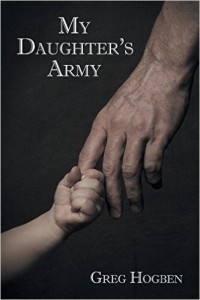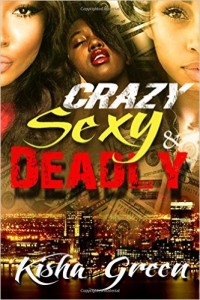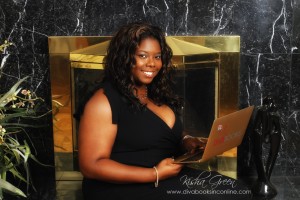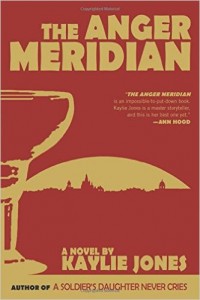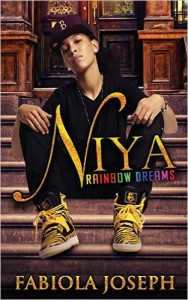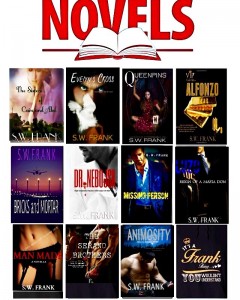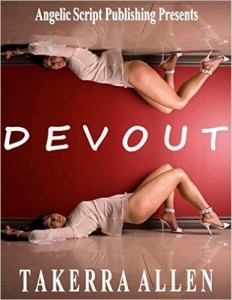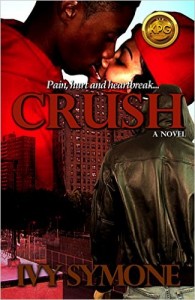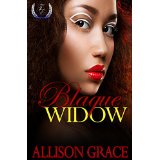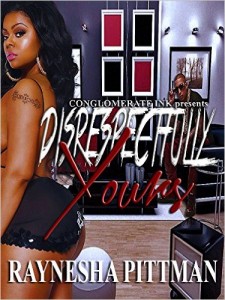Category Archives: Author Interviews
Interview with Jim Woods
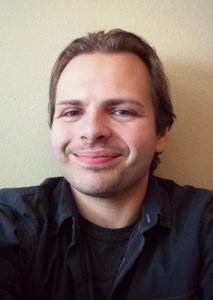
In 2012, I had the pleasure of connecting with Jim Woods on Twitter and then meeting him in person at Jon Acuff‘s Quitter Conference held in Nashville. Jim was so kind, encouraging and gracious toward me. I’ve witnessed his growth as a writer and I am honored to be interviewing him.
*************
1) When did you know you wanted to be a writer?
I think it was when I wrote a report in the fourth grade. I was really into nature and I wrote about snakes. I realized how much fun it could be to do research and then telling a story about my findings.
2) How did you develop the confidence to find your voice as a writer?
I think it was more through practice and trial and error. That being said, writing how you talk is always a great place to start.
3) Were there any books you read that helped shape and mold you as a writer?
Absolutely! I love Steven Pressfield‘s Do The Work and War of Art. Also, I have a lot of fiction influences: Edgar Allen Poe, Elmore Leonard and J.D. Salinger.
3) What did you do before you transitioned into being a full-time writer?
I was an accountant for over 15 years. That’s hard to believe now!
4) How long did the process take? What steps did you take in making your dream a reality?
About three years. It was a long long three years. Writing as much as possible, networking, going to conferences, meeting as many people for coffee as possible.
5) Now that you have succeeded, what is it like being on the other side of the rainbow? Has it been anything like you had imagined?
It’s like a good struggle, like when you’re tired after working really hard. You’re exhausted, but at the same time very satisfied.
To answer your other question, it’s harder than I thought it would be. It can be hard to unplug from the work.
6) What does your writing process look like?
I like to watch my work as much as possible. I am a momentum-based emotional writer so I like to find some easy wins and then go from there.
7) What is the hardest thing about being a full-time writer?
It’s pretty lonely and rejection comes with the territory.
8) How do you encourage yourself to keep going?
I talk to other writers and learn from them. Whatever the circumstance, it is very likely that someone else can relate.
9) Where do you see yourself in the next five years?
I just want to work with good people and keep telling good stories.
10) Are you working on any new projects?
About a month ago I created an event called the Finish Your Book Summit where I interviewed 16 authors who have written over 100 books. It’s still live, so you can access the interviews by going to finishyourbooksummit.com.
11) What advice would you give to someone starting out?
Don’t be afraid to start out slowly. Build a good writing habit—even if it is just for 5 minutes a day. Over time you’ll build momentum and see serious results!
Thank you for a wonderful interview, Jim.
*************
Jim Woods is a freelance writer, author, author assistant, and writing coach that loves to help others tell better stories. You can connect with him at jimwoodswrites.com.
Interview with Andi Cumbo-Floyd
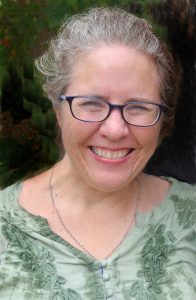
Once again, I am excited to be interviewing one of my mentors, Andi Cumbo-Floyd. It’s been five years since I’ve last interviewed her. I first connected with Andi on Twitter in 2012, and have had the pleasure of following her ever since. She is an amazing writer, editor, coach and much more. If you have not read her blog posts or any of her books, I would highly recommend that you do.
********
1) What are the things you wished you had known when you were finding your way as a writer?
I wish I had known that the better part of a writer’s life is about discipline and perseverance and much less about talent or inspiration or affirmation. I wish I had known that showing up at the page and doing the work would be reward in and of itself and that avoiding that work would weigh far more heavily than the weight of actually doing it.
2) Could you describe your writing process?
Sure. On the days when mothering and editing allow me time to write, I sit down with a book of poetry and a journal. I read one or two poems, and I watch for the line that most stands out to me for whatever reason. Then, I copy over that line into my journal and start writing with that line. Sometimes I write about what the line brings up, and sometimes, I begin working on my work in progress. Either way, these few handwritten pages help me drop into the place of creativity and leave the rest of my world behind for a bit.
Then, I transition over to the computer and write 1,000 words on my work in progress.
3) Has becoming a mother changed the way you write?
The most obvious change is that I have far less time to futz around before getting to work. Since I am my son’s primary caregiver and since I also work full-time, I have to get right down to work when I have time to do the writing, which isn’t every day anymore.
But it’s also made me a little less precious with my words, a little less willing to stay on the surface. I go deep and quickly. Sometimes that means my writing is more raw. Sometimes, it means it takes me more time to find what I really need to say.
4) What is “voice” and how do you develop it? How did you find yours?
Voice is, as I see it, just a fancy way of saying the way a writer sounds on the page. It’s a combination of the way a writer says things – sentence structure, vocabulary, dialect – and also what they say about what topics. I found mine – as I think all writers do – through practice. I wrote, read what I wrote (often out loud), and felt what read as most genuine to who I am. Then, I just kept practicing until more of what I wrote sounded like more of me.
5) How does a writer arrive at knowing what they should write (i.e., non-fiction, fiction) and what genre?
I don’t like the word “should” about most things in life, but particularly about writing. There is no “should” about what a writer writes. It’s all about preference and about what we have to say about things. But there is nothing that any one person should or should not write. There’s only what we want – maybe sometimes need – to write.
6) In your experience, what is the most important aspect in becoming a professional writer?
Discipline and perseverance. Doing the work. That’s it.
7) I find most great authors, which includes you, hold Master’s degrees. Do you believe a writer needs a Bachelor’s and Master’s degree to succeed in writing good stories? If not, why do most great authors go through the process of a college education? What do you believe is the key to becoming a successful writer or author when someone doesn’t have a college degree?
Thanks, Pilar. I got a degree in writing because I needed a credential to teach writing, and I got that credential. . . but more, I learned discipline and to write to a deadline. I learned about critique and writing regularly. I learned how to give and receive criticism. I learned some things about craft, too. But none of those things require a degree. Anyone can learn all of them through writing groups or online communities, through partnerships with other writers, or through a solid, self-imposed discipline toward writing.
And I would say that I don’t know that most authors do get a degree, at least not a degree in writing. Some of us do, but many, many writers I know have no college degree in writing and almost none have graduate degrees in writing. I know a writer who has a chemistry degree and another who works by day as a software developer. A degree isn’t necessary at all. It’s just a construct that helps us learn discipline and some of the tools in a concentrated way.
8) When you mentor and encourage others to write a thousand pages a day, what does that look like? Does journaling count? Or does the writing have to be something specific like working on a short story, novel or memoir?
A 1,000 words a day. (Not a thousand pages. 🙂 ) Shawn Smucker suggested I try that, and it works well for me. For me, 1,000 words is pretty much all I have time for these days. So sometimes those words go toward a blog post, sometimes toward an interview like this one, sometimes toward my work in progress. Billy Coffey suggested that – the discipline of writing 1,000 words of anything a day is key, not necessarily what you write.
9) Do you consider listening to audiobooks reading? Do you believe there is a difference between reading physical books versus electronic or audiobooks for a writer?
I do think listening to audiobooks is reading, a different form of reading but reading nonetheless. The difference is in how we take in the story, but both are really valid ways of accessing stories. In audio, we listen to the way the sentences move on the page, to the trip of language, and while we do some of that when we read on the page, we are also more focused on the visual layout – paragraph length, the shape of the words visually (or via touch if we read in Braille.) Neither is better or worse. They are just different ways of spending time with story.
10) You are an author, blogger, vlogger, editor, farmer, mother, etc. You have successfully achieved and attained so much in your life. What’s next? What are your goals now?
I have been given a lot of gifts in life, and one of my main goals is to steward them well. So that means making my family a priority in a new way now that Milo is with us. But it also means figuring out how to do that and still be responsible to my clients and readers . . . and to myself. I would not be a healthy person if I didn’t write, so one of my main goals is to figure out how to mother and still write.
11) I finished reading your latest book, Love Letters To Writers, and I am now reading Discover Your Writing Self. Both books are wonderful and encouraging. Are you working on anything new?
I am, but I’m not talking about it publicly yet. I’ve found that I need to let my books have some silence around them, especially at the beginning, so I’ll be saying more about that around my spaces in the coming months.
12) What do you enjoy writing more fiction or nonfiction and why?
Oh, I enjoy both, but my heartbeat is in creative nonfiction. There’s just something about wrapping words around an experience or bit of history that gives me energy and flexes my mental and creative muscles. I love that.
Thank you for a great interview, Andi.
********
Andi is a writer, editor, and farmer who lives at the edge of Virginia’s Blue Ridge Mountains with her husband and son, four dogs, three cats, six goats, and thirty-two chickens. She writes regularly about the writing life at andilit.com. You can find her on Facebook, Twitter, Instagram, Pinterest, LinkedIn and Goodreads.
Author Interview: Greg Hogben
I had the fortune of connecting with this brilliant author on Twitter several months ago. I am so glad, because I enjoyed reading and reviewing his thought provoking book, My Daughter’s Army. It is one of those books that when you finish, you won’t see things the same way. I learned a great deal from reading his book. It is a privilege to introduce to you, Greg Hogben.
1) Where did you grow up?
I grew up on the South Coast of England in a county called Sussex south of London.
2) What was your childhood like?
It was a typical British childhood for that area of the country. We had the South Downs to explore and the seaside town where I grew up was always busy in the summer. It wasn’t until I traveled that I appreciated how much we had just by growing up where I did.
3) What was the first book you ever read?
Hmmm, that’s a tough one. The story I most clearly remember reading from beginning to end is Charlotte’s Web.
4) When did you discover you were a writer?
To be honest, I have only recently come to consider myself a writer. Even though I’ve been fortunate enough to have two books published, the title ‘writer’ still sounds odd to me. I still get a kick out of being described as an author.
5) Who are some of your favorite authors?
I loved the Harry Potter books, but The Casual Vacancy is perhaps my favorite JK Rowling book. She nailed the class system in Britain exactly right, to the point I could change any given character’s name with someone I know and her description would be perfect.
6) What are some of your favorite books?
I recently enjoyed the the Monstrumologist trilogy by Rick Yancey. I’m also a huge fan of Stephen Fry and anything he writes. His humour, honesty, and his wit never ceases to impress me.
7) What specific things did you do to perfect your writing?
I don’t think I did any one particular thing. Like most people I tend to write, re-write, edit, and edit again until it feels like it fits. The problem with writing a book is that you become so involved in it that sometimes you become blind to what someone who is reading the story for the first time will catch instantly, such as holes in the plot, going off on a tangent, or repetitive language. I relied heavily on friends and family to give me the harsh truth. I felt some personal pressure with this book. The hardest part of writing My Daughter’s Army was to try and do justice to the real-world stories of the adversity women face.
8) When did you begin blogging for the Huffington Post?
About three years ago. I wish I could write more, but the past two years have been taken up with research for the book.
9) How did you get involved in LGBT, human and women’s rights issues?
I have always been involved with LGBT rights. As a gay man, I have lived under the laws enforced by the government (both in the UK and the USA) and have been affected first-hand by the results of inequality. Many of the anti-gay groups protested that Marriage Equality was redefining traditional marriage or that their religious freedom was somehow put at risk . What many opponents failed to talk about was how the inequality affected gay people’s pensions, healthcare insurance, immigration status, taxes, adoption/parenting rights, etc. And still, in 2016, there is a ridiculous number of states in America where business owners STILL legally can fire someone for being gay. It was this kind of injustice that led me to see the world differently. You begin to notice how people are treated, how their ‘worth’ is quantified. The more you look for it, the more immediately apparent it becomes. That’s what led me to investigate women’s rights issues.
10) Was there a particular incident that provoked you in becoming an advocate?
About 9 nears ago I read a story of a lesbian couple who were on the first day of their cruise out of Miami. One had been playing with their kids on board before they departed when she suffered an aneurysm and was rushed to hospital. Because their relationship was not recognized by law the hospital forced her partner of 18 years to remain in the waiting room and wouldn’t allow any input with regard to her healthcare. Though her entire immediate family were just feet away, she died alone because of the hospital’s bureaucracy and the law in Florida. I remember how angry and frustrated I was that this couple’s last moments together were stolen from them.
11) What has your experience been thus far as an advocate?
It has been very rewarding. On the side of LGBT rights, it has been amazing to see how much things have changed in just the past three years. The changing laws bring hope that full equality is on the horizon. On the side of women’s rights, it is more frustrating. There is still an alarming number of women around the world who are oppressed or are living in modern slavery. The problem is so huge, yet so many people don’t seem to know about it. The statistics on human trafficking, honor killings, acid attacks, and rape are overwhelming. But with more awareness and pressure, especially from the West, hopefully things will begin to change for the better. Women in Saudi Arabia were able to vote (and run for office) for the first time this year. Seventeen women were elected to public office. It’s this kind of change, even if it’s just the first step, that is needed in every region of the world.
12) Did you always want to be an advocate for a cause?
I have learned that raising awareness is the first step to change. That’s what I want my role to be through my book and through social media. There are thousands who maybe don’t see themselves as active advocates, but the truth is raising awareness is a form of advocacy. The support of an issue, and a voice added to the crowd will and does make a difference. I became an advocate for women’s rights because I discovered and investigated the issues.
13) What are some of the principle things you’ve learned in doing this work?
The world can be a terrible place, and the horrific examples of what man is capable of are far too numerous. It’s enough for anyone to despair and shutdown. But at the same time, you can see people desperately trying to make a change and it restores your faith in humanity — whether it’s volunteers who give their time, professionals who donate their skills, or people who give whatever they can afford to help someone they don’t know.
14) What inspired you to write your second book, My Daughter’s Army?
The inspiration came from the desperation of LGBT kids committing suicide because their families, church, and even local politicians were telling them ‘God hates gays’. Many were (and, sadly, still are) being thrown out by their parents and in the past many of those kids were turned away from homeless shelters if they confessed they were gay. I am not a religious man, so I can only imagine how that must affect anyone’s faith. So I wanted to write an alternative to everything they’d heard all those years. What if God didn’t hate gay people? What if he trusted a gay man to raise his daughter? That was the original concept. It was through researching what issues I thought a modern day female messiah would preach that the book became about more than challenging the concept of a few out-of-context verses from the Bible, and more about the power people have when they don’t rely just on prayer.
15) Did you experience the things you wrote about?
I have experienced my fair share of homophobia. Living in central Washington DC during the years that led up to marriage equality there weren’t many weekends that you didn’t see some kind of demonstration or protest on the National Mall. It’s impossible not to take it personally when people are holding a picture of two nooses with the caption ‘the solution to gay marriage’. In my twenties I was lucky enough to travel a great deal of the world from Europe, to the Middle East, Asia and Australia. I have seen firsthand how women are oppressed around the world. Being young, I acknowledged it, but didn’t grasp it the way I do now. With the advent of social media you can read people’s voices and get a better sense of what that kind of oppression means and leads to.
16) What do you believe is needed to see change?
Awareness. That is first and foremost.
17) Lastly, what advice would you give to anyone starting out as a writer?
If you are passionate about writing, don’t give up. If you have a story you feel needs to be told, tell it. Writing the first draft of a novel is an incredible achievement in itself, something millions fail at. Celebrate it! There are a thousand websites telling you how to write, what to write, that it’s hard to write good characters, and nearly impossible to get published. Stay away from them. And finally, many of the best novels come from indie publishers. Not only are they passionate about books, they are incredibly supportive, which is priceless.
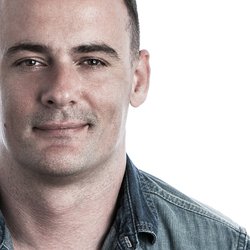 Greg Hogben is a British author based in Washington DC. Greg is a human rights advocate with a particular focus on raising awareness of worldwide women’s rights and LGBT equality. Follow him on Twitter and his blog with The Huffington Post.
Greg Hogben is a British author based in Washington DC. Greg is a human rights advocate with a particular focus on raising awareness of worldwide women’s rights and LGBT equality. Follow him on Twitter and his blog with The Huffington Post.
Author Interview: Kisha Green
Kisha and I connected on Facebook and then finally met at the Black Pack Party in Harlem last May. I loved her genuine, sweet and kind spirit. I not only am grateful to call her my colleague, but also my friend. I have the utmost respect for her and all that she contributes to the publishing industry. It’s with great pleasure to introduce to you, the multi-talented, Kisha Green.
1) Were you born and raised in New Jersey?
Yes, I was born in New Jersey and at the age of two, I moved to Richmond, VA with my mom only to return at age eleven after my grandmother died and have been in New Jersey since.
2) When did you start being interested in reading and writing?
I have always been an avid reader thanks to my mom. As an adolescent I enjoyed books by Judy Blume and Beverly Cleary and then graduated to the Babysitter’s Club series and then once in high school, I started reading books by VC Andrews, Mary Higgins Clark, Jackie Collins and Stephen King.
3) Did anyone in your life influence or encourage you to read or write?
My mom. I remember watching my mom come home from work, change out of her nurse uniform, cook dinner, eat and spend the rest of the evening reading. This was a daily ritual.
4) Do you remember the first book you read? What was it?
Hmmm…It was story about a mouse and a motorcycle but I cannot think of the title.
5) Who are some of your favorite authors and books?
Jackie Collins is my favorite author. Her writing is exciting and outside the box and I get swept away in her words, she was a creative story teller. May she rest in peace.
6) Did you read any books that helped you in writing?
Some creative writing books and techniques about showing versus telling.
7) When was the pivotal moment when you decided to pursue your dreams?
Even though I had self-published my first book in 2007, it was not until 2011 that I decided that I wanted to do promotions and literary consultations as well as assist authors.
8) Were you afraid? If so, how did you overcome your fears?
I was initially afraid but I told myself failure was not an option and took a leap of faith.
9) When did you start your own business and what are all the things you offer in regards to your business?
In 2006 DivaBooksInc was formed but it wasn’t until 2011 that I really took it serious and gave it my all. I wanted to provide quality services to authors and publishers at reasonable rates.
10) When did you decide to write your first book?
In 1999, I read Flyy Girl by Omar Tyree and a year later I said I should write a book and tried to but shelved the idea and then picked it up again only to postpone it after my mom dying. Then going through an emotional rollercoaster of feelings regarding my writing a book to finally saying I was going to do it in 2006.
11) What did you learn from the process?
I learned that hard work and patience pay off but most importantly you must remain consistent.
12) How many books have you written in total?
I have written three full length novels, participated in four anthologies and one poetry book. I am currently working on my fifth anthology that is a collection of erotica stories.
13) Which one was the hardest to write and why?
The hardest one was Dear Mommy which was my third book that tells my story of dealing with the death of my mom to a brain tumor. I self-published it through a print on demand back in 2008 and since then took the book down and have been working on it off and on to release again through my own publishing company.
14) Where do your ideas come from?
Real life experiences of myself, friends and family and IDTV.
15) What is your writing routine or process?
I write notes all the time and then sit down attempt to turn them into stores. I write at the most random times and can be anywhere. I write the best with my laptop and music playing.
16) How did you hone your craft?
Reading books.
17) You where many hats… between writing your own books, publishing other talent, promoting other talent, your talk show and blog… how do you manage and balance it all?
The grace of God. I wear many hats and equally enjoy them all.
18) How long did it take you to build your business?
Lol! I am still building. This is a full time job and I cannot stop especially when I am trying to create a legacy for my children.
19) What’s next for Kisha Green?
This year I am entering the arena of publishing others and have signed two very talented authors that will be making their debut with DivaBooksInc this year and I am very excited about this new chapter in my life as well as helping these writers turn their literary dreams into published realities. I will take everything that I have learned from being a literary consultant, reviewer, radio show hostess, promoter, blogger and virtual assistant, and pour that into my authors while never giving up.
20) Lastly, what advice would you give to a novice writer?
Do not give up! Do not worry about any one telling you no, when you can create your own YES!
Author Interview: Kaylie Jones
I had the pleasure of meeting Kaylie Jones at the Brooklyn Book Festival last September. I attended a panel where she, Terry McMillan and Dennis Lehane discussed their latest books. (You can listen to the discussion here.) I immediately connected with her. As you will see for yourself, she is not only a gifted and brilliant writer, but an intelligent, interesting, lovely and beautiful person. I am blessed, privileged and honored to introduce to you, the extraordinary Kaylie Jones.
1) When did you decide you wanted to write?
When I was eight I started to write a novel in a school notebook. It was about a girl who runs away from home with her talking bear. I showed it to my father, who was very encouraging. He didn’t correct anything or give me advice, he just told me to keep going. I soon gave up, of course. He died when I was sixteen, a blow from which I will never fully recover. Soon after, I went off to college, completely directionless. The literary critics were very hard on my father and I felt I needed to understand where he stood in the canon of American letters, so I started to pursue the study of literature. I had a comp 101 professor, the writer Daniel Stern, who pulled me out of the class and told me he would work with me privately because I showed great promise. I was stunned; I didn’t believe him, but I applied myself to improving my writing. Really, all my stories were memoir in the guise of fiction. It wasn’t until my Junior year, when I was studying Tolstoy’s War and Peace, that I had a moment of enlightenment, a spiritual awakening, you might say. I was reading the death of Prince Andrew and realized that if a writer who’d lived more than one hundred years before me, with whom I shared no cultural experience, could write about the process of death and dying in a way that rescued me from my own grief, I thought – okay, this is what I’m going to do. I’m going to try to be a writer.
2) Was there anyone in your life who encouraged you?
While my father was very sick and unable to leave the house in the winter of 1976-77, we read books together. That was one of the highlights of my last year with him. We read Faulkner’s A Rose for Emily, Hemingway’s For Whom the Bell Tolls and A Farewell to Arms. We read Bonjour Tristesse, by Francoise Sagan, and The Wanderer, by Alain-Fournier, his favorite French novel. He did not go into explaining the authors’ stylistic choices; he liked to discuss the characters’ choices and actions, as if they were real people who were making the decisions for themselves. We also read the poems of Edna Saint Vincent Millay and Emily Dickinson, with whom he was a little in love, I think. These writers helped shaped me not just as a writer, but I believe they shaped my moral backbone and helped me to stay on some kind of moral path after my father was gone and no longer there to advise me.
I had fantastic writing teachers along the way. I often think of them as sages holding up lanterns along a dark path. In college, Daniel Stern was my first mentor. Later, I got into a very small and kind of elite writing workshop with a professor named Jack Paton, who was a veteran of WWII. He took issue with my father’s profanity and overuse of adjectives and adverbs. We would fight about it all the time! But I loved Jack, and he taught me to control my style, how to be precise and get my sentences down to their fighting weight. Later, I went to graduate school at Columbia, where I got my MFA. I studied with Richard Price, Edmund White, and Russell Banks. Can you imagine that good fortune? They were tough as nails, and I learned to listen to their criticism and advice.
Richard Price gave me a thirty book reading list one summer, telling me that I was “too immersed in the classics.” He wanted me to read what he called “down and dirty” modern fiction. So on that list were John Reechy’s City of Night, Selby’s Last Exit to Brooklyn, Jim Carroll’s The Basketball Diaries, all of Toni Morrison’s works – many of the books that shaped him as one of our most important modern writers.
3) How did The Anger Meridian come about?
The second time my mother was hospitalized for alcoholism my daughter was starting first grade in a new school. We spent every free minute at New York Hospital. My mother would stare me down and yell at me as if I were somehow to blame for her condition. Everyone on the floor, including my daughter, heard her calling me the most awful names. My mother had a small heart attack while she was there, and they moved her to intensive care. I watched the heart monitor go up and down, up and down, and just kept praying for it to flatline. For her to die now, with no more pain. But she survived, and the horror went on for another four years. I often asked myself, “What would it take, what would be the last straw, that would push a daughter to kill her mother?”
I discussed this, philosophically, with my daughter, the way my father used to discuss characters with me. “I want to write a book about a woman who is pushed so far by her mother that she kills her, but it’s in a moment of passion, of rage.” My daughter, who was about seven at this point, offered advice.
That following February, we were standing on the edge of a veranda of a big house overlooking a cliff in San Miguel de Allende, Mexico, where I was teaching a writing workshop with Beverly Donofrio, when my daughter said, “I know what you’re thinking. This is the perfect place for your character to push her mother off the cliff.” That was exactly what I was thinking and it was the beginning of the novel. But as the novel progressed, I became less and less sure that Merryn, my character, would be capable of pushing her mother off the cliff. So that is what the book is really about. What would be so awful that she’d find herself capable of such an act? Did she do it? Could she? Would she?
4) Bibi is an amazing character, how did she come to you?
Bibi, the mother in the novel, is based on several women I knew growing up, including my own mother. Educated women who grew up in luxury and without a want in the world – beautiful, admired, adored by their husbands, friends, and children. Usually they did not have careers, and perhaps that is where their feelings of insecurity, anger, and restlessness came from. They were women to whom no one ever said no. This is a little bit like being a movie star, where a person becomes so famous that no one will contradict her. In a situation like this, where a person is so insulated by her own family and her money, that the real world is only a vague scrim in the distance, her children often become her hostages. That is what I was aiming to describe: a 40 year old daughter who suddenly finds herself in actual fact stuck, held hostage, penniless, and at her mother’s mercy. That is the dynamic that drives the novel. The added dimension is that Merryn, the daughter, has her own 9 year-old daughter, Tenney, whom she adores, and whom she wants to protect and honor. So it’s a constant battle of wills between feeling like she has to honor her cruel and narcissistic mother, or honor her own child.
5) What is your writing or creative process?
Usually an idea for a book comes to me and I will attempt to plant that kernel. Then I water it and give it light and wait to see if it will grow. I’ve had many ideas for novels that never took root. It takes me about a year of thinking before I open a notebook and start to take notes. Then I start thinking about the idea of sitting down and opening a blank document on my desktop. This is the hardest part. My old friend the author Lucy Rosenthal called this “page fright.”
Then, hopefully, I start to write.
6) What are some of your favorite books or authors?
I still return to Tolstoy over and over again for style and form. No one shows characters’ feelings better, especially characters who are unaware of what they are feeling; at least, the reader becomes aware of their feelings before they do themselves. This is very hard to pull off.
One of my favorite novels is Pale Horse, Pale Rider, by Katherine Anne Porter. I wish more people still read her work. I go to her for courage. Often I’ll turn to Flannery O’Connor’s short stories for technique and precision. I especially love O’Connor’s imagery and the way she anthropomorphizes objects in her descriptions. I love that she has such despicable characters that are still fascinating. John Cheever still inspires me and helps me to hone my craft.
I fear our literature has become too obvious – white hat/black hat for the good guy and the bad guy. If only life were so simple!
Recently I took Ann Patchett’s State of Wonder with me to China while I was studying Kung Fu with Shaolin monks. I love her writing. She kept me company as I struggled to keep up with the youngsters in the Shaolin school. I think she is a very important American writer.
7) Is a writer born or made?
My friend Susan Cheever, John Cheever’s daughter, said something to me once that really stayed with me. She said, “Face it, we’re circus folk.” Meaning, if you’re raised in the circus, you learn to be a circus performer. If your mom rode elephants, you learned to ride elephants. I believe this is true for the children of writers.
I’d say most serious writers were children who felt a great loneliness and isolation, and found solace, friends, in books. The next step is giving back, writing to reach out and communicate with others who may feel the same way. This is probably a romantic notion, but I have always thought of literature as my higher power. The thing that pulled me from my own pit of despair and chaos.
8) What did you personally do to perfect your craft?
I never stop reading, studying sentences, studying writers. In an interview John Irving once said that he was never able to read for pleasure again once he became a writer, because he was constantly trying to figure out how the writer did something in the book, something technically spectacular. This made me laugh because I do the same thing.
One of my former students recently discovered Cormac McCarthy. I get texts and emails from him almost daily, quoting Cormac McCarthy and asking my opinion on how in the hell did McCarthy do this or that? Again, I laugh. This is how real writers think. Someone who tries to take the sentences apart to understand how the author did it. Which, of course, takes the element of magic, of unconscious inspiration, out of the equation. And that’s the part we can’t really account for. What my dad used to call the 10% magic part.
9) What do you like the most and the least about writing a book?
I like when I feel a chapter or a short story or essay is finished. I can look back happily and say, “Well, that is good work.”
I hate a blank page. That feeling of heart palpitations and sweaty palms as I sit down to start. What I hate almost as much as that is my inner censor/critic, who tells me I have no right to write, and that I’m a vain and egotistical person to think I have the right to sit down and express myself. It’s taken me years to silence that voice, and bring it to the fore only in the final editing process.
10) Lastly, what advice would you give to an aspiring author?
I think learning when to silence that inner censor is a crucial part of being able to be creative. When to bring that critic out and when to keep him/her locked away. It is very easy to become discouraged as a writer.
One of the most important aspects of becoming a writer is finding a supportive community. Whether this is in an MFA program or among other like-minded writers, I think a writing community is crucial. I don’t mean a wife, husband, brother, sister, or best friend who says, “This is awesome!” I mean a serious reader who will give you honest and intelligent feedback. Also, if we don’t take criticism personally, it really helps.
I love the term “Literary Citizenship.” I believe it was coined by my friend, writer Lori May. Jim Warner, the poet, often uses it to describe a writer’s willingness to share, and to offer advice without assassinating another person’s work. And doing what we can to support each other without competitive jealousy. Many years ago I made the decision to help other writers whenever I could.
When I was in Soviet Georgia as a student in 1987, we Americans could NOT pay for anything! The Georgian cabbies wouldn’t even take our money. When we tried to pay for pirozhkis at street kiosks, the street vendors would not accept our money. I’d never had this happen to me anywhere in the world. I asked one Georgian cab driver why they would not let us pay. He told me a Georgian fable: “When God was making the world, he walked all over his creation, distributing goods from the Horn of Plenty. But he tripped over the Caucasus Mountains, fell and dropped the Horn on Georgia. That is why we have everything here! But the secret is, the Horn of Plenty only stays full if you give everything away.”
I have tried to live by that rule ever since.
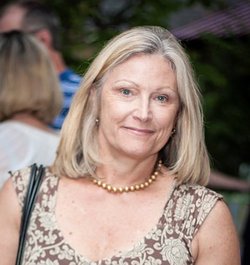 KAYLIE JONES has published seven books, including a memoir, Lies My Mother Never Told Me, and her most recent novel, The Anger Meridian. Her novel A Soldier’s Daughter Never Cries was adapted as a Merchant Ivory film in 1998. Jones has been teaching for more than twenty-five years, and is a faculty member in the Stony Brook Southampton MFA in Creative Writing & Literature program and in Wilkes University’s MFA in Creative Writing program. She is the author of Speak Now and the editor of Long Island Noir. Her newest endeavor is her publishing imprint with Akashic Books, Kaylie Jones Books.
KAYLIE JONES has published seven books, including a memoir, Lies My Mother Never Told Me, and her most recent novel, The Anger Meridian. Her novel A Soldier’s Daughter Never Cries was adapted as a Merchant Ivory film in 1998. Jones has been teaching for more than twenty-five years, and is a faculty member in the Stony Brook Southampton MFA in Creative Writing & Literature program and in Wilkes University’s MFA in Creative Writing program. She is the author of Speak Now and the editor of Long Island Noir. Her newest endeavor is her publishing imprint with Akashic Books, Kaylie Jones Books.
You can follow Kaylie Jones on Facebook and Twitter.
Author Interview: Fabiola Joseph
I connected with the beautiful and talented Fabiola Joseph on Facebook almost a year ago. I watched her from afar, and saw her passion for the arts; writing, reading, music, film, cooking, and everything in between. She has exquisite taste and I resonate with everything she posts. Her writing is beautiful. Her energy and vibe is unique and special. I was so happy she agreed to do an interview with me. My prayer is that the rest of the world will see her gift. I see it, and I know others do too, but my hope is that the rest of the world sees it, and experiences her talent firsthand. It is with great pleasure to introduce to you, Fabiola Joseph.
1) What was it like growing up in Springfield, Maryland as a child?
Growing up in Maryland was lovely. I have always enjoyed watching the seasons change and it offered so much to do. I love the zoo, museums, and poetry clubs. I could go on for days; there was always something to do. There was always a reggae club or house party I was sneaking out of the house to attend. I just love the feel and flavor of Maryland. One minute, you could be in Washington D.C. enjoying the fast city life, and the next minute, you could be in the suburbs. I had the pleasure of growing up in Montgomery County. It was extremely diverse and allowed me to interact with people from all over the world. I always laugh when I think back and remember this girl Sarah. She was a Jewish girl who introduced me to Snoop Dog and 4 Non Blondes. I grew up not seeing color or religion, I just saw people…and I credit that to growing up in Mo county, as we call it.
2) You found your passion with the written word in middle school. Do you remember what book did it for you?
Yes, it was a combination of four books and a movie. Whoreson and Street Players by Donald Goines. Disappearing Acts but Terry McMillan, Flyy Girl by Omar Tyree, and the movie “Poetic Justice.” I was captivated by all four of them and they made me want to build my own world and tell a story.
3) What was the first piece you ever wrote?
The very first book I wrote was titled, Among Us. It was a tale, of sex, friendship, and deceit. It was soooo juicy, but someone stole it from me years later. It was hand written.
4) Did anyone influence or encourage you to write?
My school mates and my teachers all pushed me to write. I was in middle school yet I had teachers letting the class socialize quietly so that they could read the fresh chapter I wrote the night before. I had to keep a separate notebook and write names down so the students could get their turn as well.
5) Describe the world through your eyes?
The world through my eyes is a beautiful, tragic, scary, loving, and colorful place. Beautiful because I have decided to see the beauty in the good and the bad. Tragic because monsters are real. Scary because at times, we don’t know who the monsters are until they are unmasked. Loving because I have had the pleasure of experiencing true love. Colorful because when it comes to people, I love them for exactly who they are, and that takes things from a dim grey to an array of colors. I get to understand the truth of their soul, and that is priceless because as a writer, we yearn for authenticity.
6) You have excellent taste in music. Where did your passion for music begin?
Thank you. My love for music comes from my upbringing. My mother always cooked and clean at night. She was also married to a man who was in a Haitian folk dancing group. They would practice at our house and the music would be blaring from morning to night. When my mother cooked and cleaned, she always had music on. She also has a great musical palate. She listened to everything from Haitian and Jamaican music, to Latin and American. I got so used to falling asleep with music on that I still go to bed with it on today.
7) What is your process as a writer?
I am always stumped when it comes to this question because I don’t think I have a process. My ideas usually come to me while writing. I guess that’s when my creative juices are flowing. For me, as long as I have a computer, music, and a snack, I’m good. At times, I need the music very loud, and other times, I need dead silence. It all depends on my mood and the mood of the piece I’m working on.
8) When you started to write for your first novel, how did you feel? Was it difficult? What did you find the most challenging? What did you learn through the process?
I always say that writing for self is one of the best experiences. When there’s no pressure from readers or publishers, I feel like I have free range to create. They only thoughts or voices in my head are that of my own, and my characters. That’s what it was like when I wrote my first book. I was free, and every single word on that paper was exactly what I wanted, not what I thought people wanted to read. That is what I have taken with me, what I have learned from writing that first book. I learned to write for myself. To stay true to me, no matter what. I still live by that motto today. I write for me, and hopefully, the world will understand and appreciate it.
9) What do you believe makes you different, distinct and sets you apart from other authors?
I laughed when reading this question because I have had shows where people call in and say, I know your writing, as if they could pick it out in a literary line-up, and I love that. I only know that I am different because the people who read my work say so. When I sit down to write, I don’t think, how can I be different this time around? I just sit and write what the characters are saying to me. I write what I am seeing while my fingers move. I don’t try and recreate anything someone else has done. I strive to tell the story my way, and that sets me apart I guess. Maybe that’s why each and every one of my books has been different from the last. I follow the characters, they lead me.
10) Are you a full-time writer, and if so, how did you make the transition?
I always say I’m a full-time author, even when I work. {lol} To me, writing is always full-time. If I’m not sitting there writing, I’m thinking about writing.
11) What does your typical day look like?
I’m always busy. I can’t wait to move back to Maryland and just have days to myself. I run around a lot. Always helping someone else, which is rewarding, just tiring. I don’t make it to bed until three, four in the morning. Then I’m up by ten the next morning to do it all over again. I hit the malls a lot between all of that. I have a shopping addiction I need to get control of. {lol}
12) What steps did you take to perfect your craft?
I’m still learning and I’ll die a student. I don’t think anyone ever reaches perfection as a writer. Hopefully, you just get better with every book you write. But, I do try and read authors far more advanced than me. I am also a huge movie buff, and that is a great teacher as well.
13) If there is one thing you could change about the industry, what would it be?
I would change how a lot of African American writers are pushed to the masses. I think that there needs to be more visibility when it comes to our work. I would love to see more of our books turned to movies, and have our books read outside of our community. Don’t get me wrong, I have readers of all races, but let’s take a book like…Fifty Shades of Grey. The reason it was so huge was because EVERYONE wanted to read it and see what the hype was all about. I only wish that for our work as well. Books don’t have a color, no matter the race of the writer or the race of the characters. A good story is just that.
14) What are some of your all-time favorite books and authors?
Donald Goines and almost all of his work. It’s so chilling and real. I love how Terry McMillan tells a story. I love the diversity in Omar Tyree’s work. I think Brandie Davis weaves words like a magician and makes them so beautiful. I love the tragic tale of Janet Fitch’s White Oleander. I also love the raw and sexy swag of Jackie Collins. There is also a book called, Groove, Bang, and Jive Around by Steve Cannon. It’s nasty, crude, shocking, and downright disgusting at times, but I loved every minute of it. I had never read anything like it. I could really go on for days but, they stand out to me right now.
15) Please list and describe your books.
I will go in order of publication. 1. The Art of Deceit. It’s a tale of sex, drugs, music, murder, and the grime that dwells behind the shadows of Hip-Hop. Tangie is a video girl who wants the world, or she’ll take it. She’ll do anything to make sure she gets what she wants. 2. Porn Stars 1&2. Author Mathew Ramsey and I really wanted to dive into the lives of our porn stars and fill you in on what happens once CUT is yelled and they go home. It’s sexy, thrilling, and full of action. 3. Rebel’s Domain. Scarlett is a 15 year old girl with an insatiable appetite for blood. Her father trains her in the act of seduction and murder, and soon, she grows into a full-blown monster. 4. Niya 1&2. Niya is a coming of age story that deals with the main character coming to terms with being a lesbian and falling in love with her neighbor, Jamilla, who isn’t quite sure how to deal with falling for a girl. It’s touching, has helped so many people, and are my most successful books to date. {Niya 1&2 has been picked up by Urban books and is not available for purchase at this time. It will be re-released into one book late 2016} I have two shorts, The Bully Bangers, and Truth or Death. In the Bully Bangers, the victim finds a way to get even with her tormentors, and in Truth or Death, you find out what happens when a man lives a double life and someone is out for revenge. Coming soon I have The Turn Out Queens anthology. Four other authors joined in on the fun to bring the readers sexy stories dealing with the workers in a lesbian night club in Washington D.C. I had a blast working with Christiana Harell, Raynesha Pittman, Ben Burgess Jr., and Renee Wallace. Pricey: Playing in Traffic was also picked up by Urban Books and it’s a hell of a story dealing with human trafficking and what happens to its victims. It will be out August 2016.
16) Which book was the hardest to write and why?
The hardest to write was Niya 2. I was going through hell emotionally and I didn’t want to have to go to that place I knew Niya would take me. A lot of my real life is in that book and that fact made it hard to write.
17) How long does it generally take you to write a book?
I have written books in as short as a few weeks, Niya 1. And up to six months, The Art of Deceit. But TAOD was well over 100k words, and Porn Stars 1&2 was well over 200k.
18) What do you want your readers to get from your books?
I want the readers to walk away from my work understanding the world more. Maybe acquiring more tolerance, more love, and more peace with themselves. I want them to be entertained. I want them to laugh and cry along with the characters. I want them to be turned the hell on and drop my book and jump on their mate. I want them to enter my world and never come out the same person they were when they read the first sentence.
19) What are some things you still want to accomplish?
In 2015, one of my literary dreams came true, and that was being signed to a major. Now, I plan on reaching the masses and changing the world, one reader at a time. I dream of my work on the big screen. I pray to touch more people and open minds. And yes, I am working on something new. I feel like she’s taking me back to that place I haven’t been since writing TAOD and Tangie. She is so raw and sexy, and I love it.
20) Lastly, what advice would you give a novice writer?
The only advice I constantly give when I am asked is, remain true to who you are and what you want to write. Never follow fads…they fade.
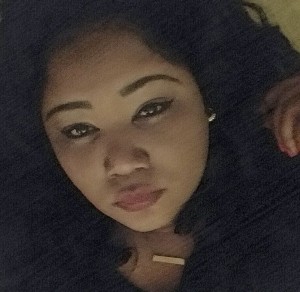 A lover of literature, good music, movies, and art, Fabiola Joseph is multifaceted. She was raised in Silver Spring, Maryland and while in middle school, she found her passion for reading and writing. She began her love affair with the power of the written word, and it was clear that writing was her destiny.
A lover of literature, good music, movies, and art, Fabiola Joseph is multifaceted. She was raised in Silver Spring, Maryland and while in middle school, she found her passion for reading and writing. She began her love affair with the power of the written word, and it was clear that writing was her destiny.In 2011, The Art of Deceit, a novel about the grime that dwells behind the shadows of Hip Hop, through the eyes of a video vixen, was released. In 2012, she co-authored the erotic tale, Porn Stars 1 & 2, which provided readers with a behind-the-set look into the pornographic life style. November 2012, Fabiola unleashed the fifteen-year-old serial killer, Scarlett Rose. Rebel’s Domain is new and exciting,, and it brings something different and captivating to urban thrillers. Suffocating in darkness, this teenager is nothing like any girl you’ve ever read about before. Her newest release is NIYA: Rainbow Dreams. Niya explores the world of a stud lesbian named, Niya, and her best friend, Jamilla. This is a story about two young women who are coming to terms with who they are. It’s a touching tale of friendship, love, dreams, and murder. Niya 2: Dreamer’s Paradise was released in 2014, continuing the Niya saga. Ms. Joseph also published two short stories The Bully Bangers, which deals with a growing problem in America’s schools. The Bully Bangers brings justice to the jilted with a twist where the predators become the prey. Truth or Death brings to the readers a new meaning to couple’s therapy and the repercussions of a man who is living a double life. Pricey: Playing In Traffic is Fabiola’s next major release. She delves deep into the world of human trafficking, and is sure to tug at your heart and soul with this gut-wrenching novel. Billie and Carmines story is not for the faint of heart. Join them as they go from kids to monsters, and from slaves to beasts.What does it take to survive in the world of human trafficking? Find out August 2016.
Fabiola is uncompromising when it comes to her work. She believes that for her… there is no box, so never try to fit her talents into one. Taking risks, being open and free within the realms of her words, and writing from the heart is the only code she lives by within the domain of literature. Enter her world and she promises that you will not come out the same. With her pen, she plans on changing the world.
In 2015, Fabiola signed a multi-book deal with Urban Books. Niya 1&2 will be turned into one book and re-released under Urban Books, 2016. It is no longer available for purchase independently.
Contact Fabiola Joseph
*Twitter – @Soulofawriter
*Email – Soulofawriter3@aol.com
*Facebook – Fabiola.Joseph3
*Fan Page – FabieTheDreamer
*Website – Theartoffabiolajoseph.com
*Instagram – TheArtOfBeingFabie
Author Interview: Takerra Allen
I have been watching this author on Facebook for quite some time now. I always resonate with her status updates. It is where I learned how she thinks, the beauty of her heart, the love of her family and readers, whom she endearingly refers to as her Luvs. Recently, I discovered she is Tupac Shukar’s sister. Tupac happens to be one of my favorite rappers. I can see talent runs her blood, however, her work stands on its own merit. With every stroke of her pen, she pours her soul out on to every page, and you feel every word. It is an honor and privilege to introduce to you, the beautiful, Takerra Allen.
1) Please tell us a little bit about yourself? Who is Takerra? Where did you grow up? How was your childhood?
I think I’m a simple woman. I am, at this stage of my life, about my family FIRST, myself second – doing what truly makes me happy and writing is one of them, finding the beauty in the world while I’m here, and pleasing God which I think all mentioned is a part of that. I was born in Jersey City, NJ, moved to New Brunswick, NJ at the age of 10, and I stayed in that area since. My childhood was beautiful because it was filled with love. I had some tough times, things I don’t discuss but I don’t let that overshadow the love my mother and father poured out on me. Even when living in Jersey City, witnessing crime and all types of things, sometimes too close for comfort even, I still felt loved. Through everything, all I can remember is the good.
2) What was your earliest recollection of writing?
When I was eight or so I began taking creative writing classes for fun – a teacher recommended me. I did a few summer writing programs. I reflect now and just remember the comfort of a teacher even at ten or eleven years old saying class, we’re going to do this while Takerra and a few other students, you guys can go to these computers and type whatever you want. It was like a treat. When they would give out journals and say write in them for the school year, I would be so excited. I always got A’s on writing projects with interesting notes – some good, some critical lol. Outstanding writing, but you can’t start a sentence with “and” or “but”. Or, Takerra, this is running on too long. The same things I was told then I find myself doing now and I realize, it’s my writing style. I wrote poems, and plays, and in a diary, and songs since I could begin writing. I didn’t go out and play much, didn’t have many friends, I just stayed in my room with imaginary characters and writing them in some way. I was weird. Who knew I was being groomed.
3) Did anyone encourage you to write or did it come naturally for you?
It definitely came natural but when I was about seventeen, I started writing my first book, Thicker than Water. It sat unfinished for a very long time. A few years later my boyfriend who is now my husband, said you should finish this book. And I did.
4) What was the first piece you have ever written? Was it published or non-published?
Thicker than Water was my first novel and it was self-published originally in 2008 and then with a new cover and editing lol in 2009.
5) What is the one thing that means the most to you?
My daughter. I can’t imagine anything coming before her. She’s a whole life that I am in charge of and I’m responsible for molding her for the world and giving her all of the love so she doesn’t do crazy things looking for it elsewhere. There’s nothing bigger than that.
6) When you first decided to write a book were you afraid or insecure? If so, how did you overcome it?
I wasn’t scared at all actually and it’s crazy because now I yearn for the lack of pressure. The first is easy to me because there’s no pretense of who you are supposed to be. No expectations. You just write what you want and it’s so liberating. Now, I have more pressure. Because more people are watching; my Luvs. I want to please them. I want to live up to the last work.
7) How does the inspiration or ideas for your books come to you? How do you formulate your realistic characters?
I dream my books. Knock on wood, they keep coming. Every time I’m afraid I will run out of ideas, I have another dream. Dream Gods please keep them coming lol. The characters are real because they don’t start as people. I don’t focus on looks, or what they’re going to do first. I focus on emotions. I feel what they feel – their fears, desires, and then I create them based on that. Because all of our thoughts and actions come from the things we desire and the things we fear. It’s what makes us, us. So when you give your characters fears and desires, you make them human.
8) What was the hardest book you wrote and why?
Restricted Too. Because it was promised. I said I was going to have a sequel before I even had the entire story. So the pressure to create it was real. I would never do that again. I’ll never say there will be a sequel until it comes to be 100% and I feel it in my bones.
9) How did you learn to perfect your craft?
Oh, I don’t think I’ve perfected my craft at all lol. I reread, a lot. I reread as a reader my work and go, do I feel it, can it be better? And I just assault my work until I personally can’t do any better. I’m very into detail now. I’m enjoying it. But still, I read Jane Austen or Stephen King or Toni Morrison and I go, why couldn’t you write like this? LOL
10) How many times do you send your work to an editor? How is the editing process for you? Do you learn the most from the editing process?
My work goes through two editing processes. Luckily, they don’t change much from how I write, they really just look for structure, misspellings, tense, grammar things like that. It may not work for everyone, but so far it works for us.
11) What are some of your favorite books and authors? Do you have an all time favorite book?
I love Jane Austen, Gillian Flynn, Dorothy Allison, Toni Morrison, and all-time favorite – Stephen King. Most people don’t count Wes Craven for writing but he wrote screenplays that were awesome and he’s one of my idols. I don’t have a favorite book really.
12) What do you want your readers to get from your books?
Love. I want them to feel love, experience love – the good and bad of it. I want them to get lost for a little and then take a message from it in the end. I believe there is a message in each one of my works. Devout – unconditional love and doing what’s best for you even if it hurts. Heaven’s Hell – strength, growth, standing on your own. (There’s Power in the…) V – forgiveness, the importance of family. Restricted – consequences. The Lonely Pole – following your dreams even when life throws a bunch of stuff at you, and it never being too late even if you lose your way. Thicker than Water – friendship, betrayal, trust, getting through hardships and losing people.
13) Do you have a writing routine? Do you write every day?
No, and no lol. I mean, I don’t go out of my way to write everyday but it does end up happening most of the time. I follow my heart and spirit and try to write when I’m feeling inspired. I feel like people heard someone say, you should write a little everyday even if you don’t want to, and now that’s like bible. That sounds terrible to me. I think that’s how mediocrity happens. When you wait until you really feel it then you have a heartfelt story. I would rather put out one heartfelt story once a year than three okay ones. Since when did it become a race? But again, it’s what works for me.
14) When did you decide to start your own publishing company, “Angelic Script Publishing” and why?
We started Angelic Script Publishing when we decided to put out the book in 2009. My business partner Sandra, saw something in my work and invested in printing the books and I appreciate her for that ,and luckily it was successful and she and I were able to make that back and more and we are still going! I thank God for what we’ve accomplished so far and all of the readers who made it possible.
15) Who had the most influence in your life and why?
I’m influenced by so many people for some many reasons. I’m influenced by my mother, God rest her soul – her strength and just the qualities of being a lady at all times. My father and his consciousness he instilled in me. My husband and his honesty and the ability to appreciate the simple things in life. My daughter and her innocence, the way she sees the beauty in everything. My brother, Tupac, his passion, his talent, the fire that couldn’t be tamed. My sisters, my other brothers, my best friend, Sandra, my readers who are so inspiring and dedicated and loving, I cannot limit it to one person.
16) You have ten books published, correct? Thicker Than Water being your first. How long does it take you to finish a book?
V2 was number 11, yay! But yes, Thicker than Water was my first. It really varies, but it can take anywhere from two to nine months lol. But I am always working on a few things at once. So I may stop a project for like six months and then pick back up and finish it in three weeks. And then I send it to Dee-Dee (Sandra) for her stamp of approval.
17) Are you currently working on any new projects?
Yes, I am working on three novels, one is top priority as well as finishing up the Heaven’s Hell film. Very excited about that.
18) Is there something else you still dream of achieving?
Film and television. I always loved film – I took drama in high school and college and adored it. Now I see it wasn’t for the acting, it was for visualizing a story. I want to see my stories played out. That’s a dream.
19) If there was one thing you would want to change about the industry, what would it be?
The lack of creativity and weed out the people doing it for the wrong reasons. It has become so trendy and I am scared for the future of urban fiction. I see great potential for the growth as far as movies, and commercialism, and the way it has expanded is phenomenal; but it seems like it’s expanding with too much crap. Too much repetition, no respect for other writers or the readers for that fact, people are looking to make a quick buck and want to be famous, and writers are not famous lol. You have to love the craft. You have to be born for this.
20) Lastly, what advice would you give new writers?
Write from your heart and make sure it’s in your heart. I’ve had many new writers contact me, and let me just say, to many, I am new as well. But I’m honored anyone would look to me for advice and I tell them the same, write from your heart and follow your own path. Many of them have gone on to write books and although many don’t mention the advice I gave, or that they’ve talked to me at all, (and by the way I try to answer every question lol even through my schedule, and some asked lots of questions lol but it’s cool and I love it). It’s love on my part and I still give that advice first. I don’t know, for reasons people like to keep their interactions with other authors quiet. Tracy Brown answered a question of mine when I first started, K’wan has always kept it real with me, Ashley and Jaquavis have shown love, Wahida Clark has shown love. I acknowledge them and thank them for that. But whether new writers chose to follow my advice or not, I tell them all the same amongst other things, and I hope that they appreciated it. Shout out to my inbox lol. And shout out to my Luvs!
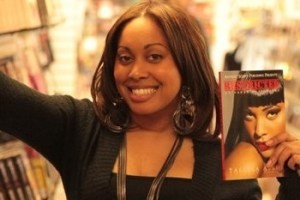 Takerra Allen is the author of eleven urban-romance titles, including the 2010 African American Literary Award nominated hit novel, Heaven’s Hell and the 2015 RT Reviewers Choice Award nominated, Thicker than Water 3. In addition to being an author, she is the proud daughter of former Black Panther William Garland and sister to the late, renowned Tupac Shakur. She has been featured in publications such as XXL Magazine and Don Diva Magazine, featured four times in the Top 10 Urban Books Listing. Her Thicker than Water series is currently published through Kensington/Dafina Publishing and an independent film based on the novel Heaven’s Hell has been filmed, directed by Takerra and produced by Angelic Script, the independent entertainment company of Takerra and her business partner, Sandra Mobley.
Takerra Allen is the author of eleven urban-romance titles, including the 2010 African American Literary Award nominated hit novel, Heaven’s Hell and the 2015 RT Reviewers Choice Award nominated, Thicker than Water 3. In addition to being an author, she is the proud daughter of former Black Panther William Garland and sister to the late, renowned Tupac Shakur. She has been featured in publications such as XXL Magazine and Don Diva Magazine, featured four times in the Top 10 Urban Books Listing. Her Thicker than Water series is currently published through Kensington/Dafina Publishing and an independent film based on the novel Heaven’s Hell has been filmed, directed by Takerra and produced by Angelic Script, the independent entertainment company of Takerra and her business partner, Sandra Mobley.
You can follow Takerra Allen on Facebook, Twitter and Instagram.
Author Interview: Ivy Symone
I had the pleasure of meeting Ivy Symone at the King Publishing Group Lobster Yacht cruise in Manhattan and again, at the Harlem Book Fair. She is an absolute sweetheart and extremely gifted writer. I loved, loved, LOVED her book Crush. I am so happy to have been able to interview her.
1) How did you come up with the name Ivy Symone?
Well, my previous publisher suggested I come up with a pen name. I thought of Maxine Simone. When I began writing around ten (the summer before 5th grade) I created my first couple: Max and Simone. My cousin loved Max and Simone! If you ask her about any of my current work today she’ll tell you those couples are okay but she want Max and Simone! But finishing the answer to the question, my previous publisher said Maxine sounded old so she suggested Ivy.
2) How did you like growing up and living in Nashville, TN.
As a child it was okay because it was all I knew. I didn’t know other places existed outside of Nashville and Murfreesboro, the city where I was born. As I got older I thought it was boring and country. But now, give Nashville a few more years…it’s going to be booming! The changes and the growth that’s occurring now…It’s really becoming a nice little city.
3) What was your earliest recollection of writing? Do you remember what you wrote?
Lol…yep. I think I answered that in question one. Max and Simone were in high school dealing with friends, family, and school. They were caucasian. Simone was the red head from the 80’s sitcom Head of the Class and Max was this dark hair guy with pretty blue eyes from this 80’s karate movie I had watched with my cousins. And that fact is interesting too because I kept Abe from Why Should I Love You with dark hair and blue eyes and originally I wrote Lovely as a redhead.
4) I read somewhere that you wrote in your earlier years, and then you started again in your adult years. What prompted you to write again in your adult years?
Writing in my adult years happened when things in my life weren’t so good. I used it as an escape; somewhat like a form of therapy. This last time, back in 2012, I was just bored. I got my first smartphone, a blackberry. I started writing on it. I was glued to that phone writing story after story. I went through three batteries too.
5) Who was your greatest influence, motivator and supporter in your writing journey?
Motivator and supporter would be my mama and my cousin Geneva. They knew writing was something I’ve always done but I never realized it was a passion until someone pointed it out to me. I just did it. End one story and start another one for no one but me to read. I didn’t even think of publishing until my mama mentioned it to me. I can’t remember what she was watching, but they had Jasinda Wilder on there talking about how she and her husband had published all of these titles on Amazon and how they were able to climb out of their financial hole with their royalties. She said to me, “Hey, why don’t you do what she did.” I scrunched up my nose and was like, “Eh, I’ll think about it.”
6) What was it like writing your debut novel, Why Should I Love You?
Man! If I had kept every version I wrote of that story! I still got two of them on my desktop that went very differently than the one I published. But I had been working on that concept since about 2012.
7) How long did it take you to write it?
The final version took me a couple of months.
8) Did you find it hard?
Nope.
9) How do your creative ideas come from?
They come from many things. A song, a movie, a poem, driving my car and seeing people interact, my problems, someone else’s problems…I just twist it up in my own way.
10) Do you write every day? When do you find it the best time to write? Do you have a favorite spot?
No, I do not write every day. What’s funny is, I can go two months without writing anything, but as soon as an idea hit me and it plays out in my head, I can write it in a matter of days. I think I write best over night. No favorite spot.
11) My favorite character is Jah from your book, Crush. How did that character come into being?
Jah, Jah, Jah…Originally Jah was not supposed to be how he turned out to be. I think what happened was too much of myself, the inner me came out in his character. Then I mixed in some traits from a couple of other people I know.
12) How do you develop your characters?
Hmmm…most of my characters have a little bit of me in them, especially the men. That’s why most of them are flawed, but sensitive and loving. But I usually think of the character, picture them in my head, come up with their personalities, anything special about them, and then give them a name.
13) Were there specific things you did to perfect your craft?
Research, read, and constantly writing. It isn’t perfected and probably won’t ever be because I’m forever actively trying to evolve as a writer.
14) What are some of your favorite books and authors?
Mary Monroe is one of my favorites. Her Upper Room is crazy. I love her humor. Zane, Eric Jerome Dickey, Carl Weber, Mary B. Morrison and E. Lynn Harris are my greatest influences. I love all of their work.
15) What are some of your hobbies, other than reading and writing?
Watching horror movies all day long!
16) You recently started your own publishing company. How did that come about?
Poison Ivy Publishing came about because I had a lot of people, aspiring authors hitting me up in my inbox seeking advice and inquiring about publishers. Some would say, if I started a company they would sign with me. So I was like, okay if you’re not going to sign with King Publishing Group (who I’m signed to) then I ain’t gonna keep giving all of this advice and all of these pointers on writing. I asked my publisher, Tremayne Johnson—he’s the best by the way—how did the sub company thing work. I wasn’t really ready, but he was like, naw you ready for the next level. Sooo…PIP is here!
17) Did you believe Crush would blow up the way it did? How did you feel?
NO! Listen, I wrote that book in seven days because I was trying to beat another label mate at the time. We had a little challenge going on. I wrote it and thought it was blah! I even asked my publisher for it back. I kept doubting it and thinking no one was gonna get the storyline and no one was gonna like Jah. I was thinking it was going to be my first book and not do so well. But man! When it dropped and a couple people were talking about it, I was like…okay…I guess they like it. Then I woke up the next morning and it had landed at #4 on the Amazon AA Urban bestsellers’ chart I was like WHAT! But even after that, I think what got me was that it began buzzing everywhere. I told Tremayne, “I don’t care if it don’t ever see number one on that chart, I’m just thrilled that people are talking about it.”
18) What inspires and motivates you?
I really don’t know. I can’t give you anything deep right here. The readers I guess. Their anticipation of something good to read from me motivates me to keep at it hoping to give them something new, different, and good. Their enjoyment of my work is rewarding. I love it!
19) How do you balance writing books and now publishing?
Uhm…ask me this in six months.
20) Last, but not least, from everything you learned as an author and now a publisher, what is the best advice you can give a novice?
Study, read, research, and write. Do everything you can to improve your craft. Establish a style, be original. Be open and have a willingness to learn. Don’t get into writing as a quick way to earn a few dollars. I believe a person does their best when writing is something they absolutely love regardless of the money making potential. Develop thick skin and have patience. When looking for a publisher, make sure you get with someone that align with who you are and share your vision. Make sure they believe in your work just as much as you do. Take pride in your work; it’s a direct reflection of you!
Thank you so much, Ivy. I wish you nothing but success in your future projects.
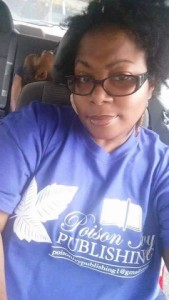 My name is really Ada Henderson but the literary world know me as Ivy Symone. I was born in Murfreesboro, TN but was raised the majority of my life in Nashville, TN. Writing for me began at the age of 10 when I was actually writing full stories. My cousin would read chapter by chapter and would rush me to complete the next one. Later in adulthood, I picked up writing again as an outlet to escape my day to day life when things seemed dire.
My name is really Ada Henderson but the literary world know me as Ivy Symone. I was born in Murfreesboro, TN but was raised the majority of my life in Nashville, TN. Writing for me began at the age of 10 when I was actually writing full stories. My cousin would read chapter by chapter and would rush me to complete the next one. Later in adulthood, I picked up writing again as an outlet to escape my day to day life when things seemed dire.
In 2013, my mother advised me to take my writing skills to a different level and consider getting published. In early 2014, I signed on with my former publisher and dropped my debut novel, Why Should I Love You in April of 2014. Why Should I Love You? 2 dropped later in August. After being released from WHP, I signed under King Publishing Group and dropped the third installment to my first series Why Should I Love You? 3 as well as another series Secrets Between Her Thighs. I’ve since put out Secrets Between Her Thighs 2, Never Trust A Broken Heart, and CRUSH and CRUSH 2. Crush 3 is due to be released November 21, 2015.
I currently reside in Nashville, TN with my three kids. I also have a fourth child but she’s grown and married and out of my house. When I’m not doing my two favorite pastimes reading and writing, I enjoy cooking, watching horror movies and spending time with my close family. I’m just a laid back goofball with a wicked sense of humor. I love to laugh!
You can follow Ivy Symone on Facebook, Twitter and Instagram.
Author Interview: Allison Grace
I first met Allison at the Black Pack Party in Harlem this year. I felt a connection to her right away. We just hit it off. She exudes wisdom, intelligence and talent. I took an immediate liking to her and am so happy to call her my friend. It is with great pleasure that I introduce to you, the gifted and beautiful, Allison Grace.
1) Who is Allison Grace?
Allison Grace is many things. I’m a woman, mother, daughter, author, introvert, comedian, master of sarcasm, author and unicorn. LOL.
2) Are you a native New Yorker?
Yes. Born and raised in the Bronx, New York. I’ve lived in Brooklyn and Harlem as well.
3) I read your love for reading and writing started early on. What was the first book you read that ignited your passion for writing?
The first book I read was Whoreson by Donald Goines. I didn’t know how much it would affect me until later on. It was my mother’s book. I used to sneak peeks of it when she was at work. The sexual nature of it ignited my passion for eroticism. Now I know why my stories are sexual in nature. When I became an adult I ventured more into romance and urban fiction. The first urban fiction novel I read was A Hustler’s Son by T. Styles of the Cartel Publications. Imagine my surprise and glee when she asked me to be a part of her Street Team in 2008 where I promoted, read and reviewed their novels to create a buzz for the company during its genesis phase. It was there that I learned the business of publishing from the outside in as opposed to the inside out.
4) Was there a particular person, family member, friend, teacher or mentor who encouraged you to write?
When I was in elementary school my second grade teacher encouraged me to write an essay and entered it into a contest. Because of that, I won and had to read it to all of my classmates and peers. I won the District 11 essay contest. I felt proud. Aside from that, my mom and my sons always encourage me. There’s nothing like being encouraged by those that stand by you. In this journey, I’ve also met amazing people such as Kevon Gulley of Save Black Boys who every day reminds me that I need to strive for bigger than I am. Also, my business partner Chris Styles and I speak every day. Sometimes I don’t even talk to him. I just text him “Foot to Ass” and he knows we need to get cracking on projects. He will also call me and remind me that I cannot slack or else nothing gets done.
5) What has your life been like and has your experiences been infused into your books?
My life has been pretty damn interesting. I have absolutely infused some of my experiences whether positive or negative into my books. They provide the passion and emotion that causes people to text me in the middle of the night and cuss me out. I’ve got a slew of animated friends and I weave some of their stories into my tales as well so it’s a mashup so to speak.
6) How does your ideas and inspiration come?
They come in the bathroom. I get my best ideas on the crapper or in the shower…. it’s quiet and you can think without being bothered, LOL.
7) What is your writing process? Do you write every day and for how long?
I try to write every day, but since I work a full time job, it’s not always possible. What I do is write in my phone when I can. Most times I zone out in my pajamas with my laptop and snacks. I can knock out about 5000 words in a weekend if I focus and I am passionate about the story told.
8) When you wrote your first book, what did you learn the most?
Oh boy! That book was basically born from a horrible relationship with my ex boyfriend. Lies, betrayals and broken promises caused me to pen poems and then they turned into short stories which ultimately turned into the books, Broken Promises Never Mend and Bound by Lies. I am working on finishing the series and tying it all together. Since it’s been a while I need to revamp it and modernize it. It’s coming though.
9) Tell us a little bit about each of your books. Which book was the most difficult to write and why?
The names of my books are Broken Promises Never Mend which is about a woman that discovers that her mate is living a double life. Because of his disrespect and betrayal, they both lose something dear to both of them.
Bound by Lies is the sequel to the above and continues where the last one left off. It chronicles the effects of what happens when one person isn’t truthful and the repercussions of love, lust and lies.
Bittersweet is my third novel and is far more gritty than the other two. It’s more erotic and “hood”. It details the story of a woman that’s a nurse by day and a stripper by night. She gets sucked in by the love of money and can’t get out of its grips.
Prepaid Mistress 1 and Prepaid Mistress 2 is the story of a woman with a torrid past. She loses her mother and father respectively at important times in her life and it molds her idealism of future relationships with men. Because of that she doesn’t know how to love and substitutes sex for it.
Bitch Clique Reloaded chronicles how past hurts can influence your future especially when it comes to family and most times when it comes to friends.
Blaque Widow tells the tale of a woman that’s married to who she sees as the love of her life. It all changes and she realizes when it’s almost too late. Struggling with abuse and addiction, she feeds her obsession with murder and ends up being out of control.
10) Typically how long does it take you to write a novel? Do you write long hand or type?
It normally takes me nine months to a year to write a book. I write with long hand at times when I don’t want to miss a thought and then type it out. Nowadays I just type it and keep moving. I go over it twice and then begin rewriting it one last time before it goes into editing.
11) How has your writing and publishing journey been thus far?
It’s been interesting to say the least. I’ve met some phenomenal people that have influenced me and encouraged me. I’ve also met some evil sons of bitches that are praying for my demise. To them, I tilt my hat because what’s for me, will be. I no longer try to please people. At the end of the day it’s OKAY to be selfish because not everyone will love your work but those that do, you push hard for them because THEY are your core fans and audiences.
12) What would you like to see change in this industry?
I doubt it will change but the backbiting… There’s enough love out here for everyone. NO one has to lie, cheat or steal to get ahead. It’s the norm however and it gets people where they need to be. I’ve been tempted to go that route but I see greater things beyond that road so I don’t dare. My blessings come from GOD not man. The end will justify the means.
13) What are specific things you did to hone your craft?
READ, READ and READ some more. I read outside of my genre and I read some within my genre when I am not working on a project. I tend to watch well written shows and translate them into how I would have written them. It takes a lot of practice, patience and perseverance.
14) How do you develop your characters?
Very carefully…. my characters are a mash up of myself and some of my friends and family. I also people watch when I travel. They show you much with their body language.
15) Do you learn a lot from the editing process? If so, what specifically?
The editing process showed me that you cannot edit your own book! Aside from that there’s a difference in line editing, copy editing and developmental editing. Those are the most common ones used and should be apart of the process each and every time. Please EDIT PROFESSIONALLY!!
16) If there was one thing you could do differently, what would it be?
I would have devoted more time to building my brand. It’s a long hard process and I’m still not as known as I should be with the amount of books I’ve written. I know however the more I grind out good material then people will want more from me and I will garner the attention I deserve.
17) What do you want your readers to take away from your books?
In all my books, there’s a woman that struggles. She struggles with if she’s pretty enough, if she’s a good mother, if she’s sexy enough, if she makes enough money. I want my readers to understand that without struggle there’s no progress and my characters make it through to the end even though their future appears dim. There’s truly a lesson in it all and a testimony when it all boils down to it.
18) How do you see yourself in five to ten years?
In 5-10 years I see myself on the New York Times Bestsellers list…….. in my home with my husband and my dog relaxing on our porch in Atlanta. I see myself basking in success and working for myself as an author published by a major imprint. I know that’s an anomaly now but it does exist and I want to continue to believe it can be my reality.
19) What new projects are you currently working on?
Shit! The true question is what am I NOT working on!? I’m working on Prepaid Mistress 3 as well as beginning another series for Sevyn McCray Presents. I am also working on two novels under my own imprint. One of them is something you all have been waiting on for a few years. Another is something new and fresh in a different genre than many are used to seeing me write in. I’m also collaborating with my business partner on a web series entitled “Slow Sippin… Yes LOVE I’m talking to you”. This collaboration is with Chris Styles, from out of Brooklyn. New York. He is a wonderful spoken word artist/poet and author. It is slated for release on Valentine’s Day 2016. We are super excited about it.
20) Lastly, what advice would you give a novice writer?
Write from your heart. It’s your heartbeat translating onto those pages. Five hundred people will have the same beating heart but no two have the same rhythm. Pay attention to your own!
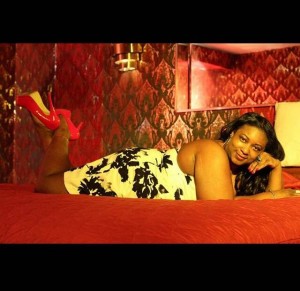 Meet Allison Edwards formerly known as Essence M & now known as “Allison Grace”. The beautiful brain behind Illuminnessence Publishing, founded in 2007 by this avid writer/ reader who began her love affair with words at a tender age. Allison went on to create an extensive catalog of unpublished works including poetry & short stories.
Meet Allison Edwards formerly known as Essence M & now known as “Allison Grace”. The beautiful brain behind Illuminnessence Publishing, founded in 2007 by this avid writer/ reader who began her love affair with words at a tender age. Allison went on to create an extensive catalog of unpublished works including poetry & short stories.
Allison’s passion for words began in early childhood, she had always been fond of reading about life, love, poetry and short stories. As she matured, she challenged herself to hone her craft, exploring various story lines and navigating into the tumultuous world of adult relationships. Throughout her teen & young adult years she decided to put pen to paper and indulge one of her fantasies, to become a writer. Some of her favorite authors include Donald Goines, VC Andrews, Jackie Collins, Judy Blume and ZANE. This eccentric choice of novels allowed her to see different genres, writing styles and what they entailed. Each were very different and taught her a lot with regards to target audiences, story lines, and descriptions. Nothing prepared her however for her venture into Urban Literature.Allison’s first experience with Urban Lit began when she, as an avid reader received a message from one who promoted for a brand new unknown publishing company and was seeking assistance in promoting novels. Members would receive a chance to win free books and other spectacular prizes. Allison jumped at the chance and was soon an official Street Team/Pep Squad member of the “Cartel Publications” spearheaded by Essence Best-selling Author T Styles and her partner Vice President, Charisse Washington. They both would play an important role in Allison’s literary career later on as mentors.Their influences and support caused Allison to link up with KingPen A.S of HHEAT Magazine and she was able to co host a show with him featuring authors on Blog Talk Radio. Authors interviewed include K.D Harris, Jason Poole, Iesha Brown, and much more. This allowed Allison access to an industry untapped where new and established authors were able to speak with her regarding novels they wanted to promote. She then took on the responsibility of hosting her own radio show which showcased authors such as Takerra Allen, Tanisha “Mahogani P” Pettiford as well as others. During this time, Allison shamelessly continued to promote The Cartel Publications and began writing her first novel.
It is with that unwavering tenacity that we’ve arrived at this point. Allison’s first venture into self publication “Broken Promises Never Mend” became available in paperback in January 2010. An amended version of which was released June 2010 in paperback, which features a new cover. It premiered on Amazon for Kindle, as of June 2010 as well. Allison learned various lessons while putting this novel together. Some of which she’s still learning to this day and with every novel she improves her craft and tries harder. She proved that by releasing a follow up to her debut less than a year later showing naysayers that she wasn’t a one hit wonder.
The sizzling sequel Bound By Lies debuted on Amazon for Kindle, February 2011 to rave reviews and is still causing mouths to drop with an ending that rivals its predecessor. Both novels are considered an “underground success” and were edited by Brandie Randolph of Editing Couture. Allison followed up with a novel for the streets entitled Bittersweet which showed the world that she was here to stay. During a brief hiatus, Allison published a short story series (Bitch Clique) that brought just as much drama as an entire season of “Scandal”.
Allison is currently focused on a collection of other works slated for release in 2016, under her imprint “Full of Essence Publications”. The idea to reinvent herself came about with prayer and the desire to be so much more than she already established herself to be. In 2013, Allison Grace was signed to an independent publisher “Sevyn McCray Presents” spearheaded by Sevyn McCray and David Weaver of SBR Publications. Her novel under that imprint PrePaid Mistress debuted at number 5 on the Amazon Bestsellers list for African American women’s fiction. She followed up with the sequel Prepaid Mistress 2 and also revamped her ebook series Bitch Clique Reloaded into a full length action packed standalone. in 2015, Allison released an emotionally charged novel focusing on domestic violence and addiction entitled Blaque Widow. Allison anticipates an abundance of blessings in 2016 and beyond beginning with work on other titles she’s got in store as well as promoting authors that seek her assistance in publishing.
“I was blessed to enter this industry and know how hard it is, so the least I can do is give back.” she says with a gleam in her eye and a smile on her face. This native New Yorker prides herself in assisting others and promotes literacy to her children. This isn’t the end of Allison Grace and we can tell she’s got a long way to go but the rewards have been phenomenal.
You can follow Allison Grace on Facebook, Twitter and Instagram.
Author Interview: Raynesha Pittman
I first met Raynesha Pittman on Facebook. I watched her from afar and was impressed by what I saw. Fate had it that we would connect, and when we did, it was if we knew each other all our lives. I am extremely proud of this talented young lady and believe this is just the tip of the iceberg of her successful literary career. It is my pleasure to introduce to you, Raynesha.
1) Where did you grow up? Did you have a good childhood?
I grew up on the east side of Los Angeles in a area known as the Low Bottoms. Now at thirty-three years old, looking back, my childhood was okay. If you would have asked me this sixteen years ago, I’m sure the answer would have definitely been different. Growth of the mind does change the memories.
2) Did you always want to be a writer?
I have always written to express myself or to entertain my friends. Writing wasn’t the shocker, but being published….now that was the shock.
3) Who was your greatest influence in your life?
My father and maternal grandmother. My father was not the ideal role model or law abiding citizen, but he was my dad. The life lessons he thought me are held near and dear. And my maternal grandmother is the reason why I am not a female version of my father.
4) What motivates you?
I was raised by two street hustlers, so being a go-getter was ingrained in me at an early age. But when that self-motivation begins to run low, my family immediately gives me a refill. I look at my babies faces, and watch my husband work two full-time jobs, so I can stay home to write. I also watch my mother fight her battle with Lupus with so much strength and determination that it recharges me. My family is my largest motivation.
5) Who are some of your favorite authors and what are some of your all-time favorite books?
My list of favorites is long, but John Grisham is number one. I love all of his work that I have read, but there’s something about The Rainmaker that makes me read it at least once a year.
6) Was there a book that changed your life after you read it?
No, not really. I’ve read a lot of eye openers that brought light to issues I’ve faced or a few to bring me to tears, but nothing powerful enough to excite change.
7) What was your experience like self-publishing your first book, Kismet?
Self-publishing was a headache and wasn’t the route I originally wanted to take. When the publisher I initially submitted it to fell through on promises, my alternative was to publish the work on my own. The rainbow that followed that storm was that the publisher walked me through self-publishing. And with a phone call to K’wan for more information, I was able to put it out myself.
8) What are some of the valuable lessons you learned by writing and publishing your first book?
Editing is key!
9) If you had to do it over again, what would you do differently?
I’d definitely hire a professional editor and a couple of proofreaders. I entered the industry trusting everything I heard and it was a very expensive mistake.
10) How have you honed your craft?
I research more and I don’t attempt to publish everything I write. A lot of what I write are skill builders. I take my non-fictional day and turn it into fiction or a medication commercial turns into a story using the side effects. It keeps my creativity going. I’m also in a lot of writer’s groups and I take lots of notes.
11) How did you go from being a self-published author to signing with Write 2 East Concepts? How did that come about?
When I reached out to K’wan in 2010, he wasn’t taking submissions. In 2011, he opened them up briefly, but my writing wasn’t where it needed to be to get signed by him. In 2013, he reached out to me and asked me if I was still writing because he hadn’t seen me mention it. I said yes. He told me to submit a story and the rest is history. He released Dog Food in July of 2014 and Dog Food 2 May of 2015. It still feels like a dream to me!
12) Do you have a writing routine and do you write every day?
No, I do not, but I do write daily when and wherever I am. With eight other people in the house having a real routine would be perfect, but with six of those eight being busy children who need me constantly, I write when I can steal time from them.
13) How do your ideas come for your books?
Life’s seasons and reasons. Everything that catches the attention of my six senses is a story waiting for me to tell.
14) How long does it typically take you to write a book?
It depends on what is going on around me. I’ve written one in three weeks and the longest was three months. It really depends on how much time I can sneak away from my responsibilities to my family. Even with pulling all nighters, there’s never enough hours in a day.
15) What are some of your goals you would like to accomplish in the years ahead?
My biggest goals are to be signed by a major publishing house and get my books on the shelf EVERYWHERE! I’m working hard to be able to cross those goals off my list so I can make new ones that are even larger.
16) What is the hardest thing about writing and publishing?
Writing isn’t hard when you love to do it. My issue with self-publishing is that I don’t have a marketing team or a promotion staff doing my leg work. I’m a one woman team and if I don’t do it, it doesn’t get done.
17) What would you like to see different in the industry?
The crab in the barrel mentally needs to be done away with. It’s easier to uplift than to breakdown. Hopefully, we will all realize this one day.
18) What do you want readers to get from your books?
I write in different genres but as a whole, a new understanding or view on the issues I touch on. If I wrote to entertain then I hope the book accomplished that goal.
19) Lastly, what advice would you give to an aspiring author?
Study your craft, read contracts before signing them and if you don’t understand the lingo, get a lawyer. Finally, never let anyone stop you from living your dreams. Giving up should NEVER be an option!
Thank you, Raynesha. It was a pleasure to interview you!
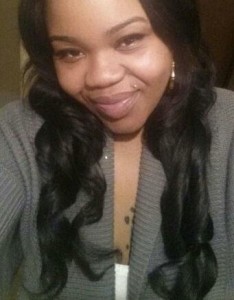 Raynesha Pittman grew up as one of Los Angele’s many troubled youth which led her into serving four years around Los Angeles juvenile corrections centers, placements, and camps. She first recognized her love for writing while incarcerated. Her first manuscript was written to her mother in hopes of giving her insight to what Raynesha was going through as a teen, but never published. One positive thing Raynesha had during her troubled years was book smarts, her ticket out of the hands of correctional facilities. She was an honors student since kindergarten, certified gifted in the third grade, and was sent to Woodland Hills, California for a more challenging education, yet she had to be placed in advance placement classes there too. Her temper and fighting had her removed from the enriched schools, but that didn’t stop her. She graduated high school at sixteen years old and received acceptance letters to five out-of-state universities which she later declined offers to due to still being on probation until eighteen years of age and not being able to leave the state. California State University at Los Angeles and Northridge accepted her last minute application with open arms. After attending school for a little over a semester she discovered she was pregnant and decided to put her role as a mother first. She moved to Tennessee for a new start with her boys and received her PTCB national certification in July 2010 after three and a half years of being a licensed Pharmacy technician. It was while working in a pharmacy, she met Michael Antonio of Payne Publishing, Inc., who encouraged her to write a book. She took his opinion to heart and wrote her debut novel, Kismet. Raynesha currently lives in Tennessee with her husband and their six children.
Raynesha Pittman grew up as one of Los Angele’s many troubled youth which led her into serving four years around Los Angeles juvenile corrections centers, placements, and camps. She first recognized her love for writing while incarcerated. Her first manuscript was written to her mother in hopes of giving her insight to what Raynesha was going through as a teen, but never published. One positive thing Raynesha had during her troubled years was book smarts, her ticket out of the hands of correctional facilities. She was an honors student since kindergarten, certified gifted in the third grade, and was sent to Woodland Hills, California for a more challenging education, yet she had to be placed in advance placement classes there too. Her temper and fighting had her removed from the enriched schools, but that didn’t stop her. She graduated high school at sixteen years old and received acceptance letters to five out-of-state universities which she later declined offers to due to still being on probation until eighteen years of age and not being able to leave the state. California State University at Los Angeles and Northridge accepted her last minute application with open arms. After attending school for a little over a semester she discovered she was pregnant and decided to put her role as a mother first. She moved to Tennessee for a new start with her boys and received her PTCB national certification in July 2010 after three and a half years of being a licensed Pharmacy technician. It was while working in a pharmacy, she met Michael Antonio of Payne Publishing, Inc., who encouraged her to write a book. She took his opinion to heart and wrote her debut novel, Kismet. Raynesha currently lives in Tennessee with her husband and their six children.
Raynesha Pittman is the CEO, Founder and a author at Conglomerate Ink, an Urban Literature publishing company established November 2010 to help authors expose and share their talents of storytelling while developing discipline in their craft. In May 2011, Raynesha was offered the opportunity to help promote literacy nationwide by childhood friend, author and now publisher Terry L. Wroten by joining the West Coast Authors Movement also known as W-CAM where Raynesha not only fills the position of an author on the team, but is also over website design and management and acts as W-CAM’s Southern liaison due to her living in the South. Her greatest literary achievement came in January 2014 when she was signed to Write2Eat Publishing under the legendary K’wan Foye.
You can follow Raynesha Pittman on Facebook, Twitter and Instagram.
